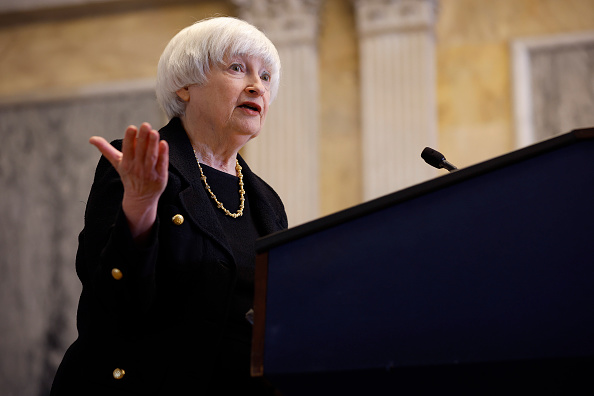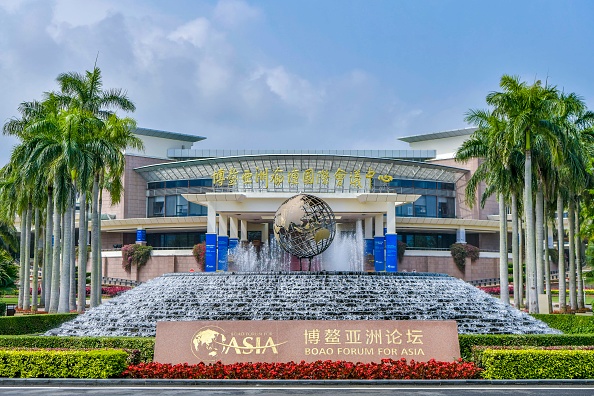
 Seeking Relief
Seeking ReliefWhile the U.S. faces the fastest inflation in four decades, two senior level Biden administration officials signaled that the U.S. may lift Trump administration tariffs on non-strategic goods from China to help provide relief for the American consumer. Both U.S. Treasury Secretary Janet Yellen and Daleep Singh, deputy national security adviser for international economics, spoke publicly about the need to maintain tariffs on goods connected to critical supply chains, foundational technologies and national security, but reduce duties on things like bicycles, apparel and underwear.
"While they may have created negotiating leverage, they serve no strategic purpose," Daleep Singh, deputy national security adviser for international economics, said of the tariffs imposed on Chinese imports during the trade war that began in 2018.
Recent research for the Peterson Institute for International Economics shows that lifting tariffs could deliver a one-time reduction in consumer price index (CPI) inflation of around 1.3 percentage points. That reduction would amount to $797 per U.S. household, about half the size of pandemic relief in 2021.
In a new report, the Office of the United States Trade Representative criticized China for continuing to fall short of promises to protect intellectual property, saying that China continues to be the largest origin economy for counterfeit and pirated goods, accounting (together with Hong Kong) for more than 85% of global seizures of counterfeit goods from 2017 to 2019.
The report was met with some backlash from China, where officials claim the document is being used as a political tool. "China has made great strides in enhancing the protection of intellectual property in recent years through various legislative and regulatory efforts," reported Chinese state-run media, the Global Times.
The Biden administration is closely monitoring China's commitments to strengthen its protections for foreign copyrights, trade secrets and other forms of intellectual property. In a 2020 trade deal signed with President Donald J. Trump, China committed to reform its treatment of trade secrets, technology transfer, patents and pharmaceutical intellectual property.
Read more in "China Policy Framework Taking Shape," by Zhang Monan, a Senior Fellow at the China Center for International Economic Exchanges.
 An "All-Out" Splurge
An "All-Out" SplurgePresident Xi Jinping is intent on China outpacing U.S. growth this year, according to a report in The Wall Street Journal citing anonymous sources that he told senior Chinese officials that it is critical to show that China's position is stronger than Western economies. In the final quarter of 2021, the U.S. economy grew at a faster pace than China's for the first time in 20 years.
Xi's comments come as China is returning to its old playbook of driving growth through public investment in big construction projects, especially in the manufacturing, technology, energy and food sectors. Xi has reportedly called for more projects in transportation, energy and water conservancy, as well as new facilities for supercomputing, cloud computing and artificial intelligence. According to China's recent government statistics, infrastructure investment already increased 8.5% in the first quarter of 2022 from a year earlier.
Between COVID-19 and the war in Ukraine, China's economy is facing enormous challenges to its growth. Lockdowns in Shanghai, China's largest city and financial capital, have ground the city to a crawl. Factory shutdowns and a slowdown at the world's largest port have increased pressure on the Chinese government to reassess its stringent zero-COVID policy.
To combat this, China will start building nationwide regional, general and freight airports, as well as intercity railway networks, urban railways and urban rail transit. China will also continue to modernize agricultural and rural areas with infrastructure modernization, and supporting national security infrastructure.
 "Indivisible Security"
"Indivisible Security"President Xi Jinping suggested a new global security initiative last week that he believes can uphold the principle of "indivisible security," though further details of how the initiative would be implemented have yet to be released. Xi presented the proposal during his keynote speech at the annual Boao Asia Forum, where he emphasized that countries should respect the sovereignty of all nations, while paying attention to the "legitimate" security concerns of all.
"We should uphold the principle of indivisibility of security, build a balanced, effective and sustainable security architecture, and oppose the building of national security on the basis of insecurity in other countries," Xi said.
Chinese state media outlet Xinhua News reported that the initiative would "provide important conceptual guidance for boosting reforms of the world's security governance system, resolve human security plights and promote the building of a community with a shared future for mankind." They also emphasized that Xi's proposal seeks common security, which underlines peace and cooperation.
Russia has also recently brought up the concept of indivisible security in talks over Ukraine, insisting that Western governments must respect a 1999 agreement based on the principle, meaning that no country can strengthen its own security at the expense of others.
Meanwhile, the Biden administration is looking to further their own plans for global security and cooperation with the upcoming U.S.-ASEAN Special Summit on May 12-13 in Washington and the QUAD Summit in Tokyo currently planned for the end of May. President Biden will hold bilateral meetings with his counterparts from both Japan and Korea, where the leaders will discuss opportunities to deepen security relationships, enhance economic ties, and expand close cooperation to deliver practical results.
Read more in "India's Neutrality: How the Ukraine Crisis is Dividing the Quad," by Richard Heydarian, a Professorial Chairholder in Geopolitics at the Polytechnic University of the Philippines.
Prepared by China-US Focus editorial teams in Hong Kong and New York, this weekly newsletter offers you snap shots of latest trends and developments emerging from China every week, while adding a dose of historical perspective.
- 2022-04-22 Tipping Point
- 2022-04-15 “Persistence is Victory”
- 2022-04-08 No Divorce
- 2022-04-01 Auditing Accountability
- 2022-03-25 Playing Policy
- 2022-03-18 One Hand Cannot Clap
- 2022-03-11 Political Forecast
- 2022-03-04 Competitive Advantage
- 2022-02-25 A Sovereign Tightrope
- 2022-02-18 Strategic Disengagement
- 2022-02-11 In the Thick of It
- 2022-02-04 Year of the Tiger
- 2022-01-28 Zero-Sum
- 2022-01-21 An Uncertain Future
- 2022-01-14 Digital Advances
- 2022-01-07 The Dawn of a New Political Year
- 2021-12-17 Clamp Down
- 2021-12-10 Debating Democracy
- 2021-12-03 Managing Competition
